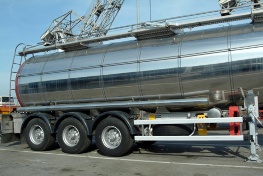
Labor Code Section 3706 states that if any employer fails to secure the payment of compensation, any injured employee or dependents may bring an action against such employer for damages as if the workers’ compensation exclusive remedy provisions did not apply. In ordinary negligence action, the injured party has the burden of proof (to a more-likely-than-not standard) to show that the defendant was negligent. With an uninsured employer, the burden is shifted to the employer to prove a lack of negligence as an employment-related injury is presumed to be the result of employer negligence.
Pursuant to Labor Code 3708, uninsured employers cannot seek to reduce their financial responsibility by making a claim that the injured employees are comparatively at fault for their own injuries or that one of their co-workers is at fault.
Under Labor Code Section 3852, the claim of any employee, public or private, against an employer for workers’ compensation does not in any way affect his or her ability to bring a cause of action against any other negligent party other than the employer. This allows an injured worker; harmed by someone not involved with the employment relationship, to recover not only the economic damages (wages and medical expenses) but also non-economic damages (pain, suffering, disfigurement, etc.) that were sustained.
Under Labor Code Section 3852m if the employer becomes obligated to pay workers’ compensation benefit, the employer or the employer’s insurance company can sue the negligent third party to recover the benefits that were paid to the injured employee.
If the employer does not bring his or her own suit and the employee does, and obtains a recovery, the employer or employer’s workers’ compensation carrier can seek reimbursement from the employer’s recovery. The amount paid to the employee can be sought, but also the employer can receive a credit against any future obligations for ongoing medical needs of the employee. This allows employers, who had no fault or role in the injury, to recover their economic losses from the person who harmed their employee.
So, Vilma, since the workers’ compensation system only covers a portion of an injured worker’s damages (economic losses for wages and medical expenses), an employer hurt by a third party can bring a legal action against the non-employer defendant to recover the full measure of their damages.
This may result in there being two actions, one in the front of the workers’ compensation appeals board and one in the civil division of the Superior Court. This not only benefits the employee but also the employer, who, through the employee’s legal action against the third party, can recover some or all of the compensation that was paid to the employee for injuries.
If you find yourself in such a situation it is important to have a trial lawyer who understands the inter-play between the civil system and the workers’ compensation system.
Christopher B. Dolan is owner of the Dolan Law Firm. Email questions to help@dolanlawfirm.com.










